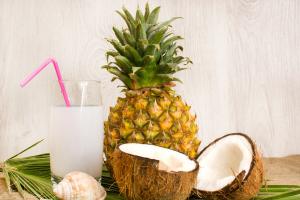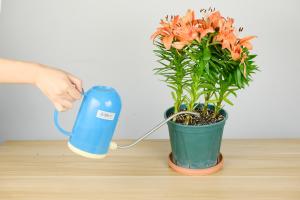Is a Tomato Plant Poisonous?
Tomato plants are a staple in many gardens and are beloved for their delicious fruits. However, a question that often comes up is whether or not the tomato plant itself is poisonous. The short answer is yes, tomato plants are poisonous, but the extent of the toxicity depends on the part of the plant and the amount consumed.
Toxicity of Tomato Leaves and Stems
The green parts of the tomato plant, including the leaves and stems, contain a toxic compound called solanine. Solanine is a glycoalkaloid, a type of chemical that defends the plant against insects and animals that may want to eat it. While solanine is not harmful to humans in small amounts, consuming large amounts of it can cause nausea, vomiting, abdominal pain, and diarrhea.
However, it is worth noting that solanine is not unique to tomato plants. Other plants in the nightshade family, such as potatoes and eggplants, also contain solanine in their leaves and stems. The good news is that the levels of solanine in tomato leaves and stems are generally low, and it is unlikely that a person would consume enough to experience any significant health effects.
The Safety of Eating Tomatoes
When it comes to eating the fruit of the tomato plant, there is no need to be concerned about toxicity. Tomatoes are safe and nutritious to eat, and in fact, they are a great source of vitamins A, C, and K, as well as antioxidants like lycopene.
However, it is important to note that some people may have an allergic reaction to tomatoes. Symptoms of a tomato allergy can include itching, hives, and swelling of the lips, tongue, or throat. In severe cases, anaphylaxis can occur.
Caring for Tomato Plants
If you are planting tomatoes in your garden, it is important to take care when handling the plants. Wear gloves and long sleeves when pruning or handling the leaves and stems. If you have small children or pets, it is a good idea to keep them away from the plants to prevent accidental ingestion of the leaves or stems.
In addition, if you are composting your tomato plants at the end of the season, it is important to remember that the leaves and stems may still contain solanine. Make sure that the compost is fully decomposed before using it in your garden to avoid any potential toxicity.
Conclusion
In conclusion, while tomato plants are poisonous, the toxicity is generally limited to the leaves and stems, and the levels of the toxic compound solanine are usually quite low. The fruit of the plant is safe and nutritious to eat, and there is no need for concern. By taking care when handling the plants, you can safely grow tomatoes in your garden and enjoy their delicious flavor all summer long.

 how many times do yo...
how many times do yo... how many planted tre...
how many planted tre... how many pine trees ...
how many pine trees ... how many pecan trees...
how many pecan trees... how many plants comp...
how many plants comp... how many plants can ...
how many plants can ... how many plants and ...
how many plants and ... how many pepper plan...
how many pepper plan...





























